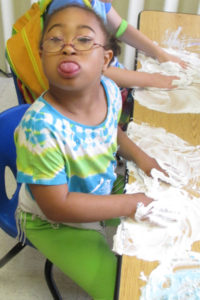Tracy Gale, PsyD, HSPP and Emmaleigh Badeaux, BS
 One of the most common behavioral challenges reported by families is sibling conflict. Siblings live in close proximity, compete for limited resources, and may have rivaling goals, resulting in frequent conflict. Although such conflict is unpleasant for all involved, it presents an exceptional opportunity for children to learn a variety of skills, including perspective taking, affect regulation, negotiation, cooperation, and strategies for handling anger. Sibling conflict creates opportunities for learning and practicing these and other skills. Caregivers can support this learning by following some simple rules:
One of the most common behavioral challenges reported by families is sibling conflict. Siblings live in close proximity, compete for limited resources, and may have rivaling goals, resulting in frequent conflict. Although such conflict is unpleasant for all involved, it presents an exceptional opportunity for children to learn a variety of skills, including perspective taking, affect regulation, negotiation, cooperation, and strategies for handling anger. Sibling conflict creates opportunities for learning and practicing these and other skills. Caregivers can support this learning by following some simple rules:
- Approach your children as a neutral third party. Deescalate each child, and set ground rules for the conversation.
- Identify the issues, allowing each child to explain their perspective. To ensure understanding, have each child repeat what their sibling said, without judgment or additional details. This may require you to remind children to keep their comments short or to break them into multiple comments.
- Guide your children towards solutions that are future-focused, encouraging them to come up with compromises, discuss their feelings, and come up with a plan. They will be more inclined to adhere to the solution if they have ownership over it, and the process of negotiating a solution is valuable in itself.
- After the conflict has been resolved, privately speak with each child and provide specific praise for the skills that they exhibited.
During moments of familial harmony, be sure to describe positive social behaviors that you would like your children to exhibit. Explicit instruction will advance their social skills, and by teaching them when they are calm, your child will be better able to learn and practice the skills. Also, reward your children for engaging in appropriate conflict resolution, playing together without conflict, sharing, celebrating a sibling’s victory, losing gracefully, and showing appreciation for each other in order to increase the likelihood of their engaging in such behaviors in the future.
Contact us for more information about behavioral services for families



